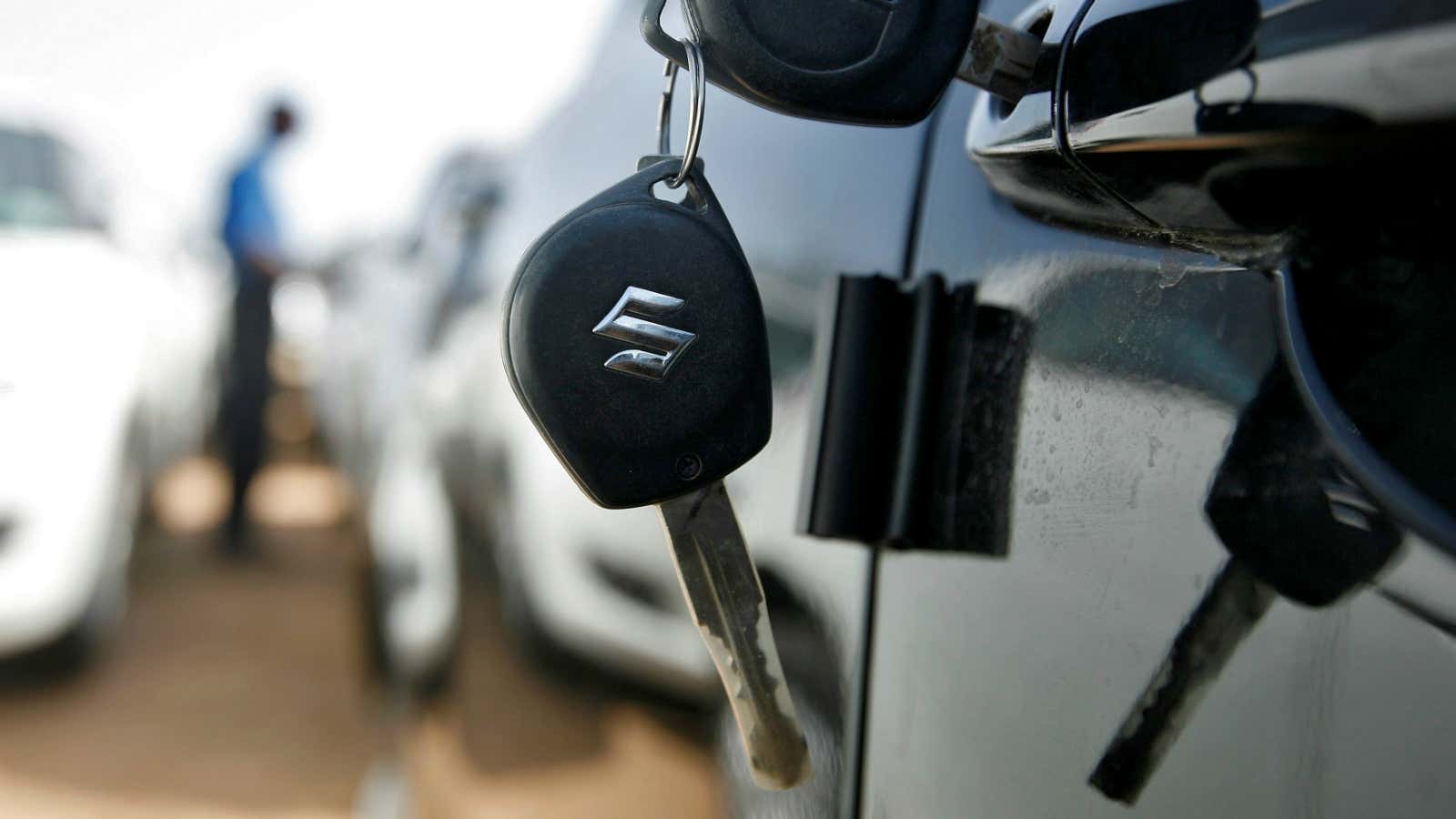The future may still be electric for Maruti Suzuki, but getting there might involve a liberal dose of compressed natural gas (CNG).
For months now, as the Narendra Modi government has waffled on a plan to kickstart electric vehicles (EVs) in India, Maruti Suzuki, the country’s largest carmaker, has insisted it will all rest on a single factor: affordability.
This keenness for CNG stems from the company’s expertise in this fuel segment, combined with the unpredictable trajectory of battery prices and the peculiarity of the automobile market itself.
“The Indian market is different from any other market in the world,” RC Bhargava, chairman of Maruti Suzuki, said last week. “Because we have 75% of our cars that are under 4 metres and under Rs5 lakh (around $7,500) in terms of price. There is no market in the world which has this kind of dominance by small cars.”
Given the current level of battery prices, converting these small cars into EVs, according to Bhargava, would more than double the cost of the vehicles. “Now, on a Rs5 lakh car, you add an extra cost of Rs6-7 lakh, I don’t think anybody would buy it,” he explained. “So, affordability becomes a huge, huge problem.”
Not all gas
And that is why Bhargava is bullish on CNG, a fuel cleaner than diesel, and one that Maruti Suzuki already has expertise in. “That technology already exists. The cost increase of a CNG car compared to a petrol car is very small, around Rs40,000,” he said. “So customers buy it happily.”
Maruti Suzuki currently sells around 74,000 CNG vehicles a year, a number that could be much higher if the fuel was more readily available, the company feels. New Delhi, for instance, has around a million CNG vehicles but fewer than 450 refilling stations.
“The problem is I can increase it (manufacturing) subject to the increase in distribution of CNG becoming wider. I can’t tell a customer to buy a CNG car and then stand for one hour to refill,” Bhargava said. The problem becomes more acute for inter-city travel since CNG is only available in some 1,200 stations across a dozen Indian states, servicing up to three million vehicles.
So, Maruti Suzuki is now in conversation with the government and oil companies to widen the CNG network. “We will try and work out a joint programme with the oil companies,” Bhargava said. “They expand the sales outlets, we expand the production of CNG cars.”
But analysts are unconvinced, describing the push for CNG as a short-term investment.
“CNG is a messy technology and delivers nothing more than a stop-gap arrangement considering it is a fossil fuel,” said Deepesh Rathore, director at automotive advisory firm Emerging Markets Automotive Advisors. “The future is EV and the sooner we build a consensus around it, the better it would be for auto companies and the government.”
Maruti Suzuki, majority-owned by Japan’s Suzuki Motor Corporation, is giving electric cars a serious shot. Suzuki is already in partnership with rival Toyota to develop an India-specific EV. It is also setting up a $180 million lithium-ion battery factory in Gujarat to manufacture the single-most expensive component of any EV.
“There is a very strong school of thought which believes that battery prices will come down to half their present price. There is another school of thought which says this will not happen,” Bhargava said. “I don’t know what is going to happen.”
